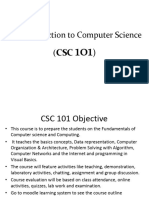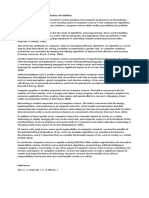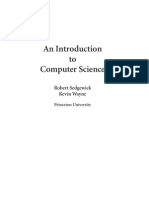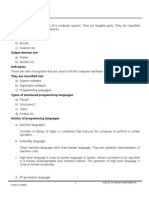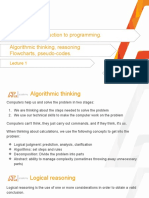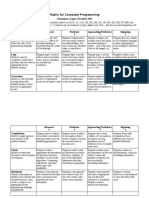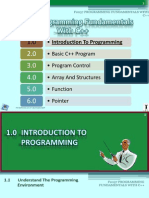0% found this document useful (0 votes)
140 views4 pagesWhat Is A Computer Science Degree-2
A computer science degree focuses on the theoretical foundations of computation and information processing. It takes a scientific approach to studying algorithms, data representation, storage, and other processes related to computing and information. Computer science examines how to analyze and develop methodical processes to acquire, represent, and access information encoded in computer systems. While some schools use the term more broadly, computer science specifically studies technical aspects of computing rather than general information technology applications.
Uploaded by
J Mani VannanCopyright
© © All Rights Reserved
We take content rights seriously. If you suspect this is your content, claim it here.
Available Formats
Download as DOCX, PDF, TXT or read online on Scribd
0% found this document useful (0 votes)
140 views4 pagesWhat Is A Computer Science Degree-2
A computer science degree focuses on the theoretical foundations of computation and information processing. It takes a scientific approach to studying algorithms, data representation, storage, and other processes related to computing and information. Computer science examines how to analyze and develop methodical processes to acquire, represent, and access information encoded in computer systems. While some schools use the term more broadly, computer science specifically studies technical aspects of computing rather than general information technology applications.
Uploaded by
J Mani VannanCopyright
© © All Rights Reserved
We take content rights seriously. If you suspect this is your content, claim it here.
Available Formats
Download as DOCX, PDF, TXT or read online on Scribd
/ 4










